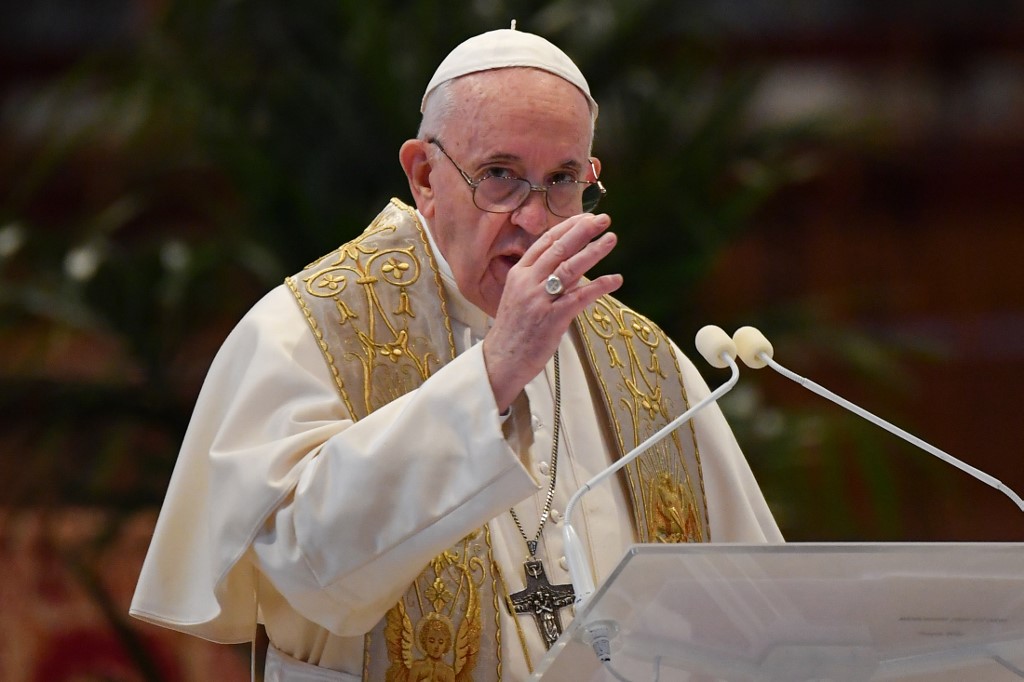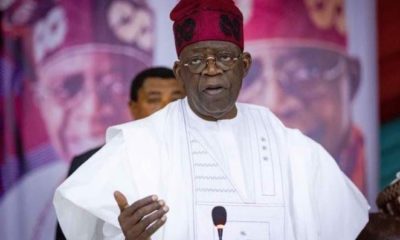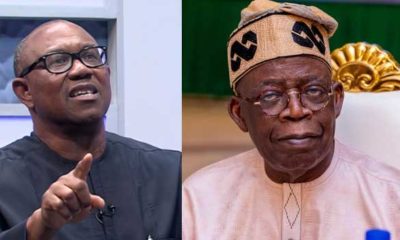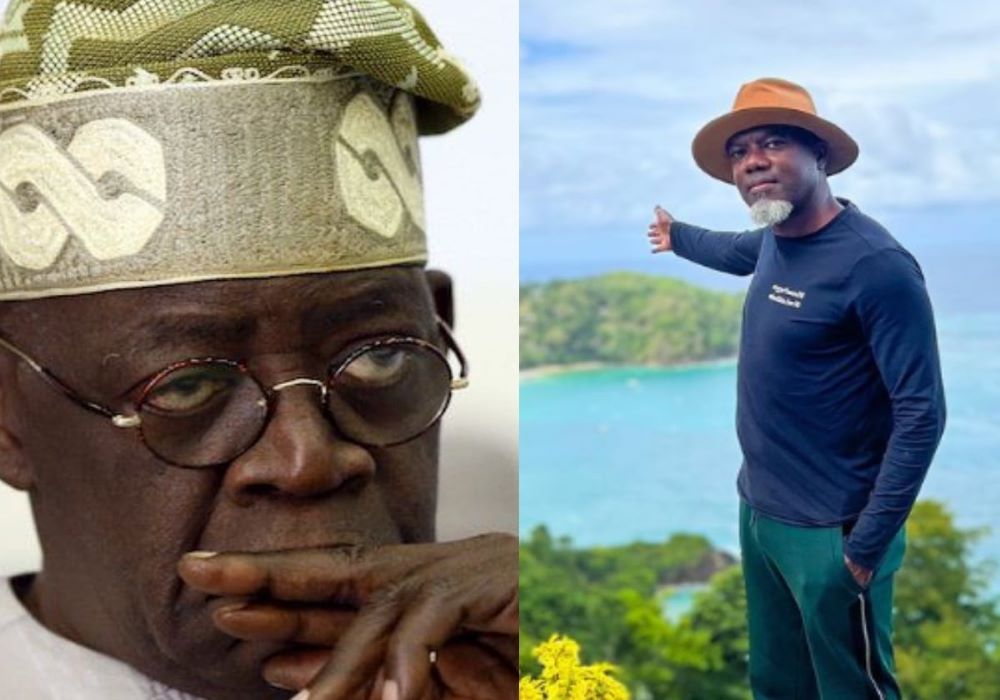NEWS
Tinubu’s Address At The 78th UNGA [Full Speech]

Mr. President, Heads of State and Government, Secretary-General, Distinguished Delegates, Ladies and Gentlemen,
Mr. President, 1. On behalf of the people of Nigeria, I congratulate you on your well-deserved election as President of this Session of the United Nations General Assembly.
We commend your predecessor, His Excellency, Mr. Csaba Korosi (Cha-ba Kor-o-chi) for his able stewardship of the Assembly.
We also commend His Excellency, Antonio Guterres, Secretary General of the United Nations, for his work seeking to forge solutions to humanity’s common challenges.
This is my first address before the General Assembly. Permit me to say a few words on behalf of Nigeria, on behalf of Africa, regarding this year’s theme.
Many proclamations have been made, yet our troubles remain close at hand. Failures in good governance have hindered Africa. But broken promises, unfair treatment and outright exploitation from abroad have also exacted a heavy toll on our ability to progress.
Given this long history, if this year’s theme is to mean anything at all, it must mean something special and particular to Africa.
In the aftermath of the Second World War, nations gathered in an attempt to rebuild their wartorn societies.
A new global system was born and this great body, the United Nations, was established as a symbol and protector of the aspirations and finest ideals of humankind.
Nations saw that it was in their own interests to help others exit the rubble and wasteland of war. Reliable and significant assistance allowed countries emaciated by war to grow into strong and productive societies.
The period was a highwater mark for trust in global institutions and the belief that humanity had learned the necessary lessons to move forward in global solidarity and harmony.
Today and for several decades, Africa has been asking for the same level of political commitment and devotion of resource that described the Marshall Plan.
We realize that underlying conditions and causes of the economic challenges facing today’s Africa are significantly different from those of post war Europe.
We are not asking for identical programs and actions. What we seek is an equally firm commitment to partnership. We seek enhanced international cooperation with African nations to achieve the 2030 agenda and Sustainable Development Goals.
There are five important points I want to highlight.
First, if this year’s theme is to have any impact at all, global institutions, other nations and their private sector actors must see African development as a priority, not just for Africa but in their interests as well.
Due to both longstanding internal and external factors, Nigeria’s and Africa’s economic structures have been skewed to impede development, industrial expansion, job creation, and the equitable distribution of wealth.
If Nigeria is to fulfil its duty to its people and the rest of Africa, we must create jobs and the belief in a better future for our people.
We must also lead by example.
To foster economic growth and investor confidence in Nigeria, I removed the costly and corrupt fuel subsidy while also discarding a noxious exchange rate system in my first days in office. Other growth and job oriented reforms are in the wings.
I am mindful of the transient hardship that reform can cause. However, it is necessary to go through this phase in order to establish a foundation for durable growth and investment to build the economy our people deserve.
We welcome partnerships with those who do not mind seeing Nigeria and Africa assume larger roles in the global community.
The question is not whether Nigeria is open for business. The question is how much of the world is truly open to doing business with Nigeria and Africa in an equal, mutually beneficial manner.
Direct investment in critical industries, opening their ports to a wider range and larger quantity of African exports and meaningful debt relief are important aspects of the cooperation we seek.
Second, we must affirm democratic governance as the best guarantor of the sovereign will and well-being of the people. Military coups are wrong, as is any tilted civilian political arrangement that perpetuates injustice.
The wave crossing parts of Africa does not demonstrate favour towards coups. It is a demand for solutions to perennial problems.
Regarding Niger, we are negotiating with the military leaders.
As Chairman of ECOWAS, I seek to help re-establish democratic governance in a manner that addresses the political and economic challenges confronting that nation, including the violent extremists who seek to foment instability in our region. I extend a hand of friendship to all who genuinely support this mission.
This brings me to my third crucial point. Our entire region is locked in protracted battle against 10 violent extremists. In the turmoil, a dark channel of inhumane commerce has formed. Along the route, everything is for sale. Men, women and children are seen as chattel.
Yet, thousands risk the Sahara’s hot sand and the Mediterranean’s cold depths in search of a better life. At the same time, mercenaries and extremists with their lethal weapons and vile ideologies invade our region from the north.
This harmful traffic undermines the peace and stability of an entire region. African nations will improve our economies so that our people do not risk their lives to sweep the floors and streets of other nations. We also shall devote ourselves to disbanding extremist groups on our turf.
Yet, to fully corral this threat, the international community must strengthen its commitment to arrest the flow of arms and violent people into West Africa.
The fourth important aspect of global trust and solidarity is to secure the continent’s mineral-rich areas from pilfering and conflict. Many such areas have become catacombs of misery and exploitation.
The Democratic Republic of the Congo has suffered this for decades, despite the strong UN presence there. The world economy owes the DRC much but gives her very little.
The mayhem visited on resource-rich areas does not respect national boundaries. Sudan, Mali, Burkina Faso, CAR, the list grows.
The problems also knocks Nigeria’s door. Foreign entities abetted by local criminals who aspire to be petty warlords have drafted thousands of people into servitude to illegally mine gold and other resources. Billions of dollars meant to improve the nation now fuel violent enterprises. If left unchecked, they will threaten peace and place national security at grave risk.
Given the extent of this injustice and the high stakes involved, many Africans are asking whether this phenomenon is by accident or by design.
Member nations must reply by working with us to deter their firms and nationals from this 21st century pillage of the continent’s riches.
Fifth, climate change severely impacts Nigeria and Africa. Northern Nigeria is hounded by desert encroachment on once arable land. Our south is pounded by the rising tide of coastal flooding and erosion. In the middle, the rainy season brings floods that kill and displace multitudes.
As I lament deaths at home, I also lament the grave loss of life in Morocco and Libya. The Nigerian people are with you.
African nations will fight climate change but must do so on our own terms. To achieve the needed popular consensus, this campaign must accord with overall economic efforts.
In Nigeria, we shall build political consensus by highlighting remedial actions which also promote 14 economic good. Projects such as a Green Wall to stop desert encroachment, halting the destruction of our forests by mass production and distribution of gas burning stoves, and providing employment in local water management and irrigation projects are examples of efforts that equally advance both economic and climate change objectives.
Continental efforts regarding climate change will register important victories if established economies were more forthcoming with public and private sector investment for Africa’s preferred initiatives.
Again, this would go far in demonstrating that global solidarity is real and working.
CONCLUSION 41. As I close, let me emphasize that Nigeria’s objectives accord with the guiding principles of this world body: peace, security, human rights and development.
In fundamental ways, nature has been kind to Africa, giving abundant land, resources and creative and industrious people. Yet, man has too often been unkind to his fellow man and this sad tendency has brought sustained hardship to Africa’s doorstep.
To keep faith with the tenets of this world body and the theme of this year’s Assembly, the poverty of nations must end. The pillage of one nation’s resources by the overreach of firms and people of stronger nations must end. The will of the people must be respected. This beauty, generous and forgiving planet must be protected.
As for Africa, we seek to be neither appendage nor patron. We do not wish to replace old shackles with new ones.
Instead, we hope to walk the rich African soil and live under the magnificent African sky free of the wrongs of the past and clear of their associated encumbrances. We desire a prosperous, vibrant democratic living space for our people.
To the rest of the world, I say walk with us as true friends and partners. Africa is not a problem to be avoided nor is it to be pitied. Africa is nothing less than the key to the world’s future
NEWS
JUST IN: Okpebholo Summons Town Hall Meeting To Address Security Challenges

In a daring move, geared towards addressing prevalent security challenges, Edo State Governor, Senator Monday Okpebholo, summoned a security meeting in Iyamho, Etsako West Local Government Area.
It was gathered that notable attendees at the meeting, on Monday, were prominent political, religious, and traditional leaders, heads of security agencies in the state, and other key stakeholders.
They converged to brainstorm on how to address the peculiar security challenges in Edo North, where security breaches have become almost routine.
Gov Okpebholo, after the meeting held behind closed doors, assured that under his watch, criminal elements will not succeed in distabilizing Edo State.
ALSO READ: Marketers In Anguish, As Dangote, NNPC Ltd War Drag Price To N880/litre
He vowed to deal with them decisively and make the state inhabitable for their activities.
Speaker Edo State House of Assembly (EDHA), Rt. Hon Blessing Agbebaku; former governor of Edo State and Senator representing Edo North Senatorial District, Comrade Adams Oshiomhole; Minister for Regional Development, Abubakar Momoh; former deputy governors of Edo State, Peter Obadan and Philip Shaibu, were at the meeting.
Others were the former Chief of Staff to the President, Chief Mike Ogiadomeh; former Minister for State Budget, Clem Agba; traditional and religious leaders, security chiefs, and other stakeholders in the security sector.
Gov Okepbholo said the security stakeholders’ meeting became necessary to ensure peace and security are maintained across the state, particularly in Edo North.
He noted that political, religious, and traditional leaders attended the meeting, where they all discussed the security challenges facing the people and came up with possible solutions.
Gov Okpebholo pointed out that Edo people should expect a better security situation in the state, as all the deliberations will be properly utilized.
“We came here for a peaceful discussion regarding security, and all our leaders are here, both traditional and religious leaders. The closed door meeting was successful as we had a good deliberation, and discussions were fruitful. We had a perfect discussion. Let us watch it from here. Things will be perfect in our land,” he stated.
Comrade Oshiomhole, after the meeting, commended Gov Okpebholo for his approach to handling security issues in the State.
He appreciated him for the security meeting and assured Edo people that the Gov Okpebholo-led administration will make Edo State safe for all to live and do business.
“Edo State Governor, Senator Monday Okpebholo has come to Edo North to discuss with the people what he has been doing and what he will do in terms of security of lives and property in Edo State.
“The meeting lasted for three hours, and it enabled the Governor to listen to comments from stakeholders and all those present. The Governor gave us the assurance that he will continue to ensure Edo is safe for us all,” he said.
Comrade Oshiomhole said Gov Okpebholo has provided vehicles and motor bikes for the police and other security agencies.
“The Governor recognized that the local people have their own role to play. We have discussed how the community will work with security agencies and forward any information they have to the Governor through available channels.
“The Governor came to meet us and to hear us out. This is the first time a Governor is doing this. I do not think during my time as a governor, I came for security meetings like we have done today.
“The people have expressed their confidence in the Governor. They have reaffirmed their loyalty and commitment to work together with the security agencies so that Afenmai land will be safe,” he added.
Bishop of Catholic Diocese of Auchi, Bishop Gabriel Dunia, appreciated all who came for the stakeholders’ meeting and urged them to collaborate to ensure peace in Edo State.
“We are very much appreciative of our Governor and all the traditional rulers who have come for us all to deliberate on the security of our people and our land. People have spoken their minds on the way forward, and we will work with it to ensure our land knows peace,” he stated.
A traditional ruler from Edo North, His Royal Highness (HRH), Mallam Ali Suleiman, said the security meeting has given stakeholders confidence, while traditional rulers have resolved to collaborate with security agencies and stakeholders to ensure peace in Edo State.
“Today, we are experiencing a landmark event in response to security issues agitating our minds. The Governor came here by himself, not delegating anyone to handle the meeting.
“We have been very worried about the development. The Governor came here himself and also the Minister for Regional Development, Abubakar Momoh and this has given us confidence and we the traditional rulers have resolved to work with security agencies and all stakeholders to ensure the State is safe for us all.”
International News
JUST IN: Vatican Discloses Cause Of Pope Francis’ Death

The Vatican has disclosed that Pope Francis died of a stroke, which caused a coma and irreversible heart failure, according to his official death certificate released on Monday.
The 88-year-old pontiff passed away on Monday morning, nearly a month after being discharged from hospital following treatment for double pneumonia.
In the statement released by the Holy See Press Office, the cause of death was identified as “a stroke, followed by coma and irreversible cardiocirculatory collapse.”
READ MORE: JUST IN: Vatican Mourns As Pope Francis Passes Away At 88
The certification was issued by Dr. Andrea Arcangeli, Director of the Directorate of Health and Hygiene of the Vatican City State.
The medical report also detailed the Pope’s history of health challenges, including “acute respiratory failure caused by multimicrobial bilateral pneumonia, multiple bronchiectases, high blood pressure, and Type II diabetes.”
His death was confirmed through electrocardiographic thanatography.
“I hereby declare,” wrote Dr. Arcangeli, “that the causes of death, to the best of my knowledge and judgment, are as stated above.”
Pope Francis, born Jorge Mario Bergoglio, became the 266th leader of the Roman Catholic Church in 2013 and was widely recognized for his efforts to modernize Church doctrine and promote global social justice.
NEWS
Okpebholo Accounts For Stewardship To Kinsmen

Edo State Governor, Senator Monday Okpebholo, has presented a comprehensive account of his achievements in office so far to his kinsmen at Udomi, Irrua, in Esan Central Local Government Area.
He made his efforts at a grand victory reception at the Udomi Primary School compound to celebrate his electoral success and victory at the tribunal.
Gov Okpebholo highlighted the strides made by his administration in less than six months and reaffirmed commitment to developmental policies and people-centered governance, pledging to continue working for the progress and prosperity of Edo State.
The Governor emphasized that he would lead with the fear of God, uphold transparency, and ensure prudent management of State resources for the collective good of the people.
Gov Okpebholo disclosed that his administration had extended electricity supply to the Udomi-Uwessan community to stimulate economic activities and foster commercial and industrial growth in the area.
ALSO READ: JUST IN: Vatican Mourns As Pope Francis Passes Away At 88
In his words, “We have commenced the development of Edo State. Our initiatives span across Edo South, Central, and North. In Esan land, we have awarded multiple road contracts to open up the region and drive economic growth.”
He also noted the installation of transformers to enhance electricity supply and boost local productivity, adding that communities such as Uwessan, Unewa, and Uromi are benefitting from extensive road construction projects aimed at improving transportation, easing the movement of goods and people, and reducing travel time.
Highlighting his administration’s efforts in education, the Governor said, “We are building new classroom blocks, renovating existing ones, and securing school premises with perimeter fencing to ensure a safe, conducive, and affordable learning environment.”
Gov Okpebholo assured that his administration would remain focused on key development areas, including road infrastructure, education, employment creation, and youth empowerment.
“By God’s grace, Edo State will witness a transformation, and the milestones we have recorded are a testament to our performance,” he added.
He expressed deep appreciation to his kinsmen for their unwavering support, stating, “My performance is rooted in the love and encouragement I receive from my people. Now more than ever, we need your prayers—they are vital to the journey ahead.”
He concluded with a strong declaration of purpose, thus, “We are blessed to have this opportunity to serve. The power we hold will be used for the benefit of Edo people. The freedom we long desired is already here with us.”





















